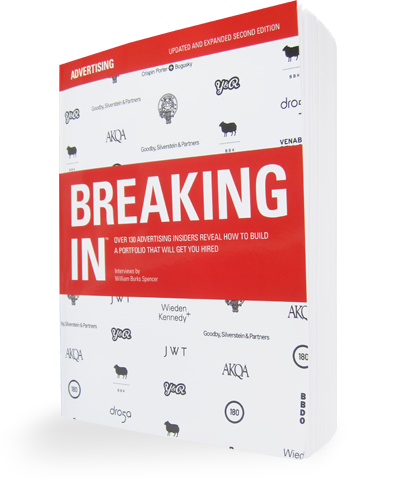If you missed it, check out some great work from Jon Bunning.
WS: What do you look for in a student book? And what impresses you?
JB: Big thinking. Simple execution. And anything that doesn’t look like an “ad.” The average consumer is barraged with communication overload much like the average creative director is barraged with portfolio overload. You gotta stand out in the clutter.
WS: How important is finish? If ideas are the most important thing, can sketches be enough? Do you look at physical books anymore, or is it all websites?
JB: A great idea is a great idea no matter what it looks like. But in this day and age, with all the resources available, bringing an idea to life is much more possible. So it’s hard to be impressed by anything that doesn’t look polished. You probably should have a book and a website. Everyone is looking for some kind of digital/interactive ability, so you can’t ignore it. Some creative directors still like to hold a tangible book in their hands. Whatever you do, make your work easy to look at.
WS: How important is writing? Do you need to see long copy?
JB: Whether you’re a writer or not, you need to be able to write well. We’re in the business of communicating. It doesn’t matter how you show it, just show that you can write.
WS: What do you think of showing work that is not advertising? Things like art, journal writing, photography, hobbies, etc.
JB: If it’s interesting and relevant, show it. Personally, I think a book of ads is boring. Some creative directors would disagree. Treat your book like it’s an experience. There should be treats and surprises along the way. It should blow minds in some parts and crack smiles in others.
WS: Do you have any other advice for a student or junior trying to get into the business, either in putting together a book or how to actually start looking for jobs?
JB: Don’t over-think your book. Make something that excites you—it will make you more passionate when you share it. It’s your body of work. If you don’t love it, don’t show it. Don’t tailor your book to what you think people will like. You’re trying to find a place that will let you make the work that you want to make. If someone doesn’t like your work, you probably don’t want to work there.

Comments are closed.